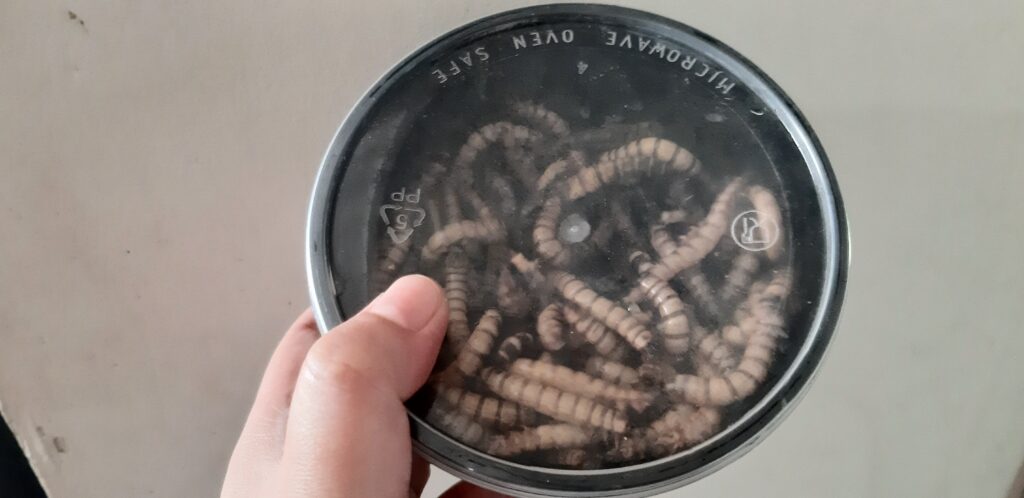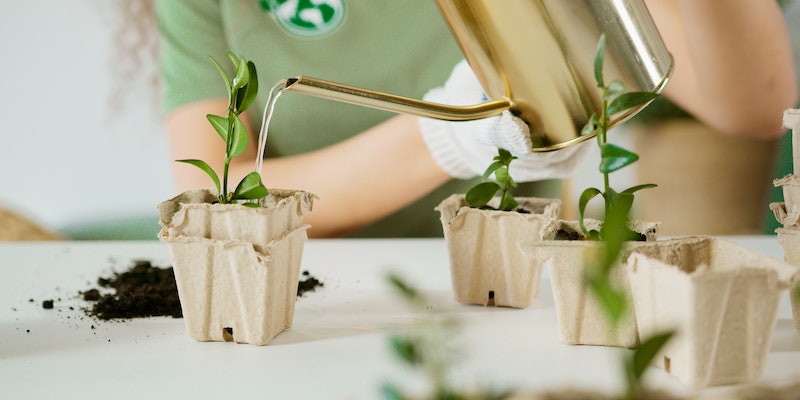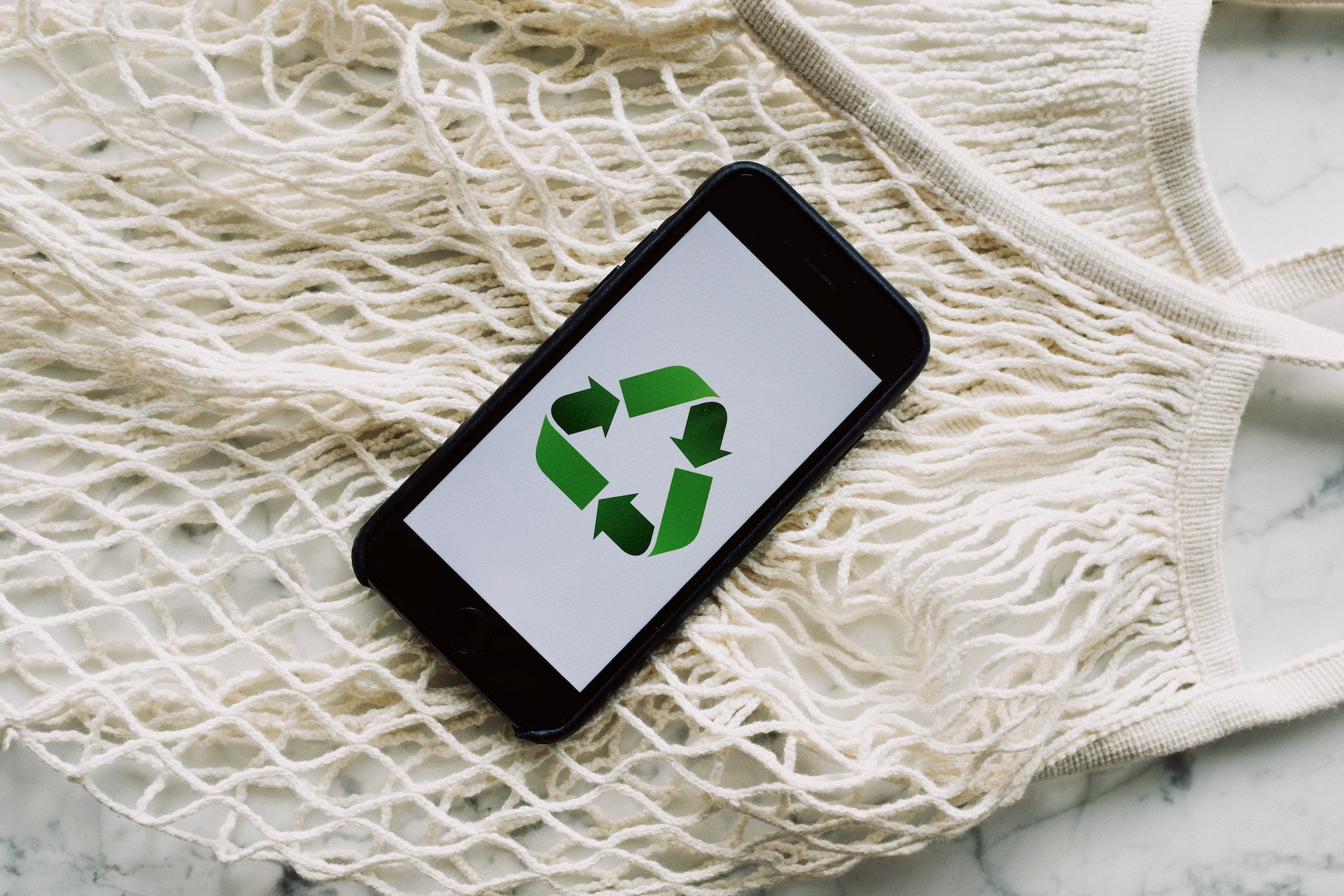“Sustainable living starts with doing something you can do and not what you can’t do.”
Sustainable living starts with what you can do today.
Imagine if each of the 131.2 million households in the United States can take part in helping the environment. The positive repercussions are significant and inevitable.
Living sustainably also comes with some perks. In fact, a lot of large companies that go green have improved reputations as more and more consumers patronize eco-friendly products, create a unique brand, and become able to stand out from other competitors. These are just major benefits of tapping into sustainable and environmentally conscious business systems. The strong financial return is another significant factor that keeps more corporations developing products and strategies along the green earth movement.
In households, the benefits are the same. For instance, switching from an incandescent bulb to an LED light bulb can save you $10 to $20 per year in electricity for 5 hours of daily use. Multiply that with the number of light bulbs and hours in your home, and you’ve got significant energy savings.
Government initiatives also make eco-friendly and sustainable programs a lucrative lifestyle that any household can achieve.
Simple Ways…
Manage Food Waste
According to UN.org, 17% of food produced globally is wasted, where households have the largest food waste sources, accounting for 11%. Meanwhile, food service is estimated to produce 5% of food waste, and retail is 2%.
Some local ordinances and programs have taken steps to recycle unsold produce and agricultural products, but the real effort must begin at home. Composting is the most popular way to reduce waste, but preventing wasting food by planning meals or having an efficient storage system is more effective.
- Make a meal plan that works with you and your family’s lifestyle. Planning meals for a week reduces food waste, and it’s also an opportunity to make healthier and cost-saving choices.
- Take care of super worms or mealworms to produce compost. If you’re not squeamish about having worms and bugs in your home or backyard, these insects are perfect for consuming fruit and vegetable peelings. Super worm and mealworm poop, or “frass,” is rich in chitin, a natural polymer, and has fungal inoculants that help plants boost their immune system and prevent diseases. Taking care of super worms or mealworms only requires a little space and can be a sustainable source of compost for your garden or potted plants.

- Use a compost machine. Most compost machines are compact, and there are that cost less than $100. They are easy to use. Simply add water to the grinder, then place food scraps and allow it to grind. This will break down the leftovers into fertilizer within just a few hours.

Use Alternatives to Plastic
The reality is that plastic has become a part of our daily lives. They are economical and can protect items such as food from water and dirt. However, one can find alternatives to reduce or completely abandon the use of slowly degradable plastics, and that is by using bioplastics. They are made from 20% natural materials such as starch, vegetable oils, sugarcane, corn, or yeast. Although, there are debates about whether the process of producing bioplastics causes more harm to the environment compared to traditional plastics. With the continuing technological advancements, these issues will likely remain a problem.
- Use eco-bags that are made from natural fiber cloth and use them when buying products or when purchasing items. Plastic products that are made from PLA or polylactic acid-based plastic are made from sugar cane or corn. The two main ingredients of PLA plastics are the lactic acid from sugar cane and the fermenting dextrose from corn. PLA is considered the most eco-friendly biopolymer with 100% biodegradable, renewability and is sourced responsibly.
Zero Waste Week shows beauty product packaging produces 120 billion packaging units yearly. Based on LCA Centre research, if refillable containers were used for cosmetics, it could cut carbon emissions by up to 70%.
- Patronize beauty products that use refillable containers and biodegradable packaging. Some companies offer refillable containers, such as perfumes and body spray products. Just bring your empty bottle to their retail shop to be refilled. It usually costs less than purchasing a brand-new bottle.

Spruce up with Eco-friendly Handmade Fabrics
A quick and simple approach to updating your home without spending a lot of money is to use handwoven, eco-friendly materials that accomplish three goals at once. Change to responsibly produced, biodegradable pillows and curtains typically made of organic cotton, bamboo, or silk.
Reuse Plastic Containers or Cans as Plant Pots
Having plants in your home, whether for visual appeal or to grow your own food, has advantages like reducing carbon dioxide and supplying fresh air. Make planters out of old milk jugs, ice cream buckets, or tin cans. It can be a fun art project or a full-blown garden renovation. Use low-VOC paints if you intend to paint them to prevent dangerous fumes from being released into the air.

Change Bulbs to LED Lights and Add Solar Powered Equipment
Switching to LED lights is the simplest approach to saving energy and minimizing your monthly service bill. The ideal LED lighting fixture is readily available on the market, whether you’re lighting your patio or your closet.
Solar-powered equipment is available in a lot in the market these days. From solar chargers for phones to a complete solar power home kit, there’s a product that fits your needs and budget.
- Solar Power Banks
- Solar Power Outdoor Patio Lamps
- Solar Powered CCTVs
- Solar Power Fans
- Solar Power Generators
Shop for Vintage Pieces
While trends do come and go, it’s undeniable that incorporating vintage pieces into your home can easily add personality to your space while reducing the garbage thrown in landfills.
Collect Rainwater
Reduce water consumption by utilizing rainwater. There are affordable package deals for rainwater tanks with a free installation that you can avail of or make your own. Though, make sure to have your DIY rainwater enclosed to prevent it from being a breeding area for harmful insects. Use rainwater for watering plants, flushing toilets, or, if properly filtered, as drinking water.
Use Low VOC Paints. VOC paint or Volatile Organic Compounds are known to cause Sick Building Syndrome due to their toxic content. You might want to search for the VOC content on the paint company’s website if no VOC content is declared on your paint can. Look for the MSDS or Material Safety Data Sheet for the info. The acceptable VOC levels for indoors is 0.3 to 0.5 mg/m3. The lower the VOC, the better. Meanwhile, the Federal government provides a limit of 250 g/l or grams per liter for flat paints and 380 g/l for matte, semigloss, and other finishes.
Extend to Your Garden – Organic Garden
Plant Trees. Plant trees around your home if there’s available space in your garden. This is an ideal way to cool down the ambient temperature during summer, as the excess light is used in photosynthesis.
Utilize Gray Water. You can divert wastewater from your kitchen sink and bathroom for watering your plants. However, using this for watering root crops is not advisable as chemicals like detergents will mix into the soil. Use this water only for plants where the edible bits are above ground.
Avoid Using Artificial Insecticides and Fungicides in Your Garden. Using natural means to deter pests and remove fungal growth from your plants is advisable, especially if it’s edible. There are plenty of recipes on the internet for making your own, and the ingredients are spices found in your kitchen.
Reduce Light and Sound Pollution. When it comes to pollution, it’s usually land, air, and water pollution that’s talked about, but whenever we hear much about light and sound. Light coming from skyscrapers in city centers is known to confuse migratory birds and insects. Certain animals get confused and mistake the bright lights for stars, usually their guiding compass when migrating.
Install sound dampeners if you have a workshop where you use power tools. Loud sounds can be harmful not just to you but to nearby people and animals. It can disrupt all kinds, as you can imagine. For the light, turning off your lights or installing lights that allow dimming can help lessen your electric bill, which means less demand from the power grid, especially at night when the demand for electricity is at the highest.






